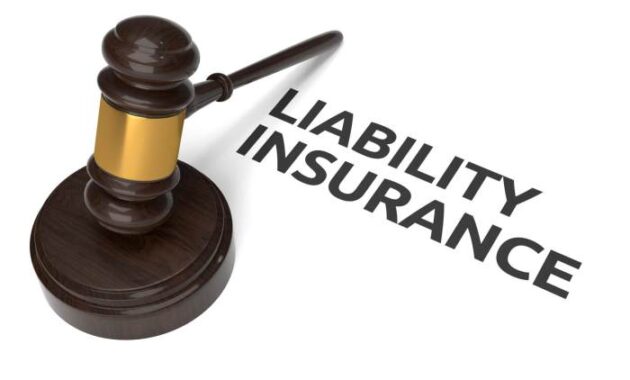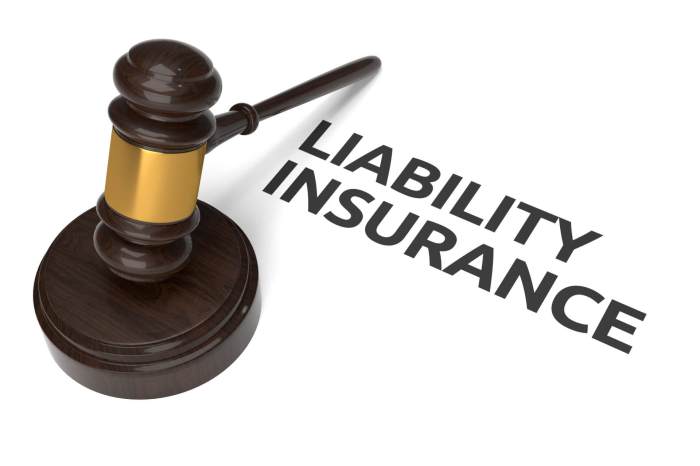
Liability insurance in North Carolina is a crucial aspect of risk management for businesses and individuals alike. Understanding the various types of coverage, the factors influencing costs, and the claims process is vital for protecting your assets and financial well-being. This guide delves into the complexities of liability insurance in NC, providing a clear and concise overview to empower informed decision-making.
From general liability protecting against accidents on your property to professional liability shielding professionals from malpractice lawsuits, the scope of liability insurance is broad. This guide will explore the diverse landscape of liability insurance options available in North Carolina, helping you identify the appropriate coverage for your specific needs and circumstances. We will also examine how factors such as industry, location, and claims history impact insurance premiums, offering strategies to potentially lower your costs. Finally, we will navigate the process of filing a claim and choosing a reputable insurance provider.
Types of Liability Insurance in NC
Understanding liability insurance is crucial for individuals and businesses in North Carolina. Liability insurance protects you from financial losses arising from claims of bodily injury or property damage caused by you or someone acting on your behalf. Several types of liability insurance cater to different needs and risk profiles. This section will detail the key types available in North Carolina.
General Liability Insurance
General liability insurance is a foundational type of coverage for many businesses. It protects against claims of bodily injury or property damage caused by your business operations, as well as advertising injury or personal injury. This coverage extends to your premises, your products, and your operations. For example, if a customer slips and falls on your store’s floor, general liability insurance would cover the resulting medical expenses and potential lawsuits. It’s important to note that this type of insurance does not cover intentional acts.
Professional Liability Insurance (Errors and Omissions Insurance)
Professional liability insurance, also known as errors and omissions (E&O) insurance, protects professionals from claims of negligence or mistakes in their professional services. This is particularly relevant for doctors, lawyers, accountants, consultants, and other professionals who provide advice or services. If a professional makes a mistake that causes financial harm to a client, E&O insurance can cover the resulting legal costs and settlements. For instance, an accountant who makes an error on a tax return could face a claim from the client, which E&O insurance would help mitigate.
Commercial Auto Liability Insurance
Commercial auto liability insurance protects businesses from claims arising from accidents involving company vehicles. This coverage applies to accidents caused by your employees while driving company cars, trucks, or other vehicles for business purposes. It covers the costs associated with bodily injury or property damage caused to others. For example, if a company delivery driver causes an accident, commercial auto liability insurance would cover the medical bills and property repairs of the other party involved. It is distinct from personal auto insurance, which covers personal vehicles used for non-business purposes.
| Type of Insurance | Coverage Details | Typical Insured | Example Scenarios |
|---|---|---|---|
| General Liability | Bodily injury, property damage, advertising injury, personal injury caused by business operations. | Businesses, property owners, landlords | Customer slips and falls in a store; a product causes injury; a business’s advertising is deemed libelous. |
| Professional Liability (E&O) | Negligence or mistakes in professional services causing financial harm to clients. | Doctors, lawyers, accountants, consultants, architects | Accountant makes an error on a tax return; a lawyer misses a filing deadline; a doctor misdiagnoses a patient. |
| Commercial Auto Liability | Bodily injury or property damage caused by company vehicles during business use. | Businesses with company vehicles | Company delivery driver causes an accident; a sales representative crashes their company car. |
Factors Affecting Liability Insurance Costs in NC

Several key factors influence the cost of liability insurance premiums in North Carolina. Understanding these factors can help businesses make informed decisions about their coverage and potentially reduce their expenses. These factors interact in complex ways, and a change in one can significantly affect the overall cost.
Industry Type
The type of industry a business operates in is a major determinant of its liability insurance costs. High-risk industries, such as construction or manufacturing, typically face higher premiums due to the increased likelihood of accidents and resulting lawsuits. Conversely, businesses in lower-risk sectors, like retail or office administration, may qualify for lower premiums. For example, a construction company working with heavy machinery will likely pay considerably more for liability insurance than a small bookstore. This difference reflects the inherent risks associated with each industry. The insurer assesses the potential for accidents and resulting claims based on historical data for similar businesses.
Location
The geographic location of a business also plays a significant role in determining insurance costs. Areas with higher crime rates, a greater frequency of natural disasters (like hurricanes along the coast), or denser populations generally lead to higher premiums. A business located in a high-crime urban area might pay more than a similar business in a rural setting with lower crime rates. Insurers consider the statistical likelihood of claims arising from location-specific risks when setting premiums.
Claims History
A business’s claims history is a critical factor. A history of numerous or significant claims will almost certainly result in higher premiums. Insurers view frequent claims as an indicator of higher risk, leading them to charge more to compensate for the increased potential for future payouts. Conversely, a clean claims history, demonstrating responsible risk management, can lead to lower premiums and potentially discounts. A business with no claims for several years might receive a favorable rate adjustment.
Coverage Limits
The amount of coverage a business chooses significantly impacts its premium. Higher coverage limits mean the insurer will pay out more in the event of a claim, leading to higher premiums. While higher limits offer greater protection, they come at a cost. Businesses must weigh the level of protection they need against the cost of the increased coverage. For example, a business choosing a $2 million liability limit will pay more than one with a $1 million limit.
Strategies for Reducing Liability Insurance Premiums
Businesses can implement several strategies to potentially reduce their liability insurance premiums. Proactive risk management is key to demonstrating to insurers that the business is taking steps to minimize its liability exposure.
- Implement comprehensive safety programs and training for employees.
- Maintain detailed records of safety procedures and employee training.
- Invest in preventative maintenance to minimize equipment malfunctions.
- Conduct regular risk assessments to identify and mitigate potential hazards.
- Maintain a clean claims history by addressing potential issues promptly and responsibly.
- Shop around and compare quotes from multiple insurers to find the most competitive rates.
- Consider increasing deductibles to lower premiums (this requires careful consideration of financial capacity).
Finding and Choosing a Liability Insurance Provider in NC

Selecting the right liability insurance provider in North Carolina is crucial for protecting your assets and ensuring you have adequate coverage in case of an accident or incident. Several factors should be carefully considered to make an informed decision that best suits your individual needs and risk profile.
Factors to Consider When Selecting a Liability Insurance Provider
Choosing a liability insurance provider involves more than just comparing prices. Key factors include the insurer’s financial strength, claims handling process, coverage options, customer service reputation, and the overall value provided. Understanding these aspects ensures a smooth and satisfactory experience should you need to file a claim. A strong financial rating indicates the company’s ability to pay out claims, while efficient claims handling minimizes stress during a difficult time. Comprehensive coverage tailored to your specific needs provides peace of mind, and positive customer service reviews suggest a responsive and helpful insurer.
Comparison of Insurance Providers: Coverage, Service, and Stability
Different insurance providers in North Carolina offer varying levels of coverage, customer service responsiveness, and financial stability. Direct comparison is essential to identify the best fit. For instance, some providers might specialize in specific industries, offering tailored policies and competitive rates. Others may be known for their swift claims processing and excellent customer support. Examining financial ratings from independent agencies like A.M. Best provides an objective assessment of an insurer’s financial strength and ability to meet its obligations.
Questions to Ask Potential Insurance Providers
Before committing to a liability insurance provider, it’s vital to gather all necessary information. Clarifying coverage details, understanding the claims process, and inquiring about customer service protocols are essential steps. Asking about discounts and payment options further ensures a comprehensive understanding of the overall cost and convenience. Investigating the insurer’s reputation through online reviews and independent ratings also provides valuable insight.
Comparison Table of Liability Insurance Providers
The following table compares three hypothetical North Carolina liability insurance providers, highlighting key features and pricing. Note that these are illustrative examples and actual prices and features may vary. It is crucial to obtain personalized quotes from each provider based on your specific needs.
| Provider | Annual Premium (Example) | Coverage Limits | Customer Service Rating (Hypothetical) | Financial Strength Rating (Hypothetical) |
|---|---|---|---|---|
| Provider A | $500 | $300,000 | 4.5 stars | A- |
| Provider B | $600 | $500,000 | 4 stars | A |
| Provider C | $450 | $250,000 | 3.5 stars | B+ |
Final Review

Securing the right liability insurance in North Carolina is a proactive step towards safeguarding your financial future. By understanding the different types of coverage, the factors affecting costs, and the claims process, you can make informed decisions to mitigate potential risks. This guide has provided a foundational understanding, but remember to consult with an insurance professional for personalized advice tailored to your unique circumstances and industry. Proactive risk management is key to peace of mind and long-term financial stability.
Key Questions Answered
What is the difference between general and professional liability insurance?
General liability covers bodily injury or property damage caused by your business operations. Professional liability (errors and omissions insurance) protects professionals from claims of negligence or malpractice in their professional services.
How long does it take to process a liability insurance claim in NC?
Processing times vary depending on the complexity of the claim and the insurance provider. It’s best to contact your insurer immediately after an incident to begin the process. Expect a range from several weeks to several months.
Can I get liability insurance if I have a prior claim?
Yes, but your premiums may be higher. Insurance companies consider claims history when assessing risk and setting rates. Be upfront about prior claims when applying for insurance.
What are the penalties for not having liability insurance in NC?
Penalties vary depending on the context (e.g., business vs. individual, specific industry regulations). Failure to maintain required insurance can lead to fines, license suspension, or legal liability in case of an incident.